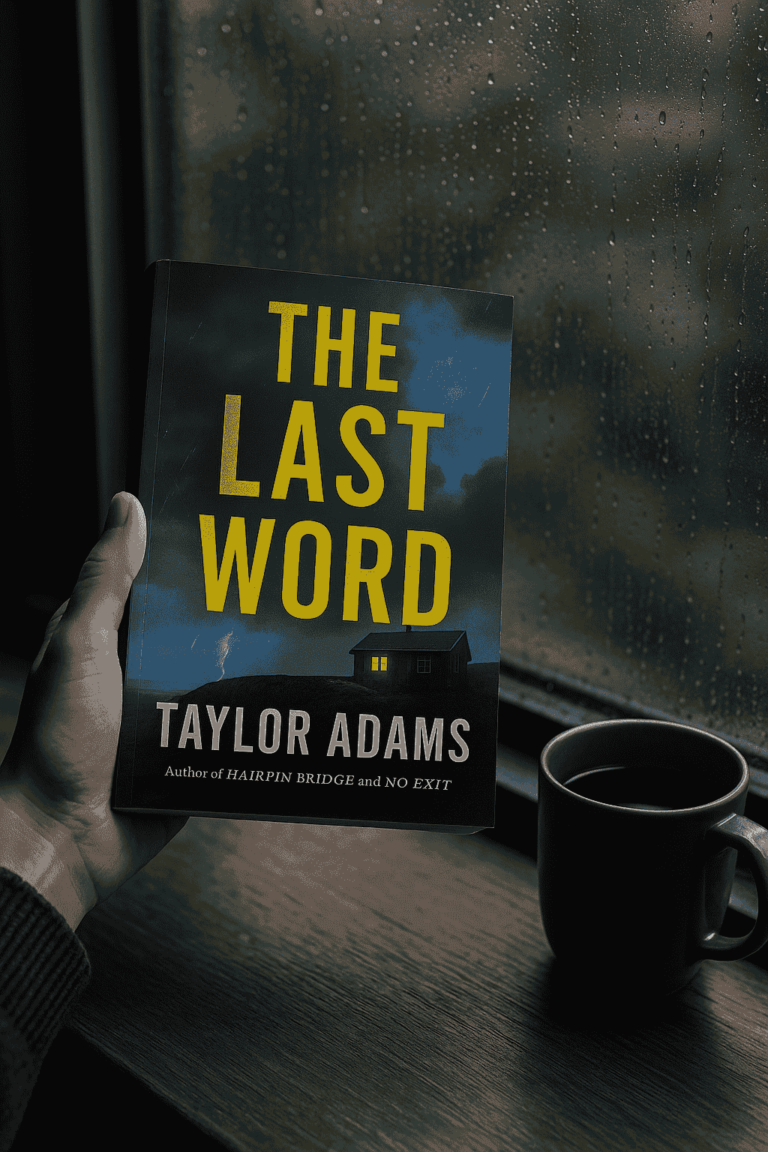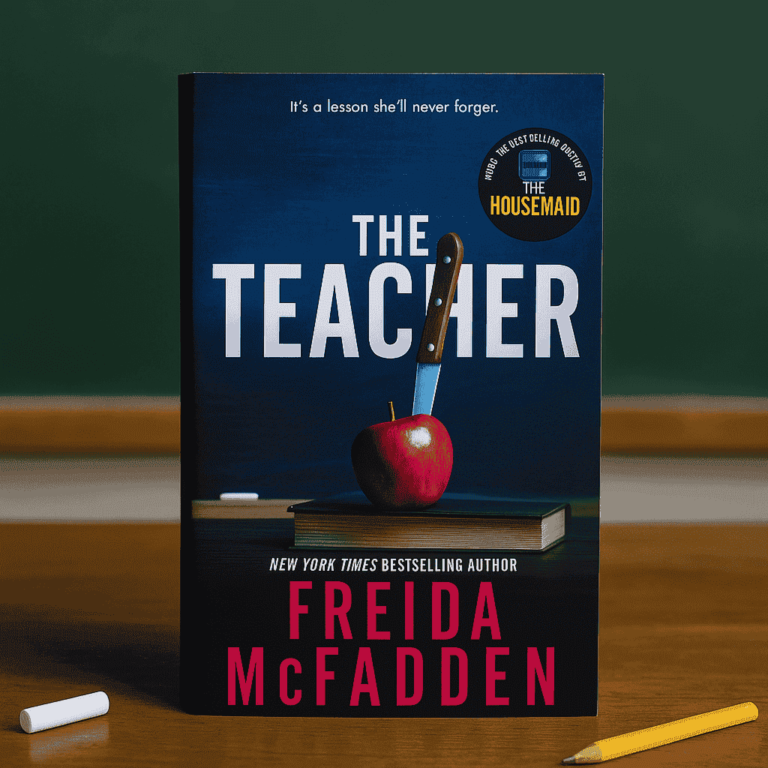Big Swiss Book Review: A Journey of Twists & Turns
Big Swiss Horror in a Single Sitting, Jen Beagin introduces Greta, an audio transcriber working for a sex therapist in the USA. She becomes captivated by a patient named Flavia, whom she dubs Big Swiss. After an unexpected encounter at a local dog park, Greta’s seemingly ordinary life begins to spiral into complex and unpredictable territory. As the story progresses, Greta turns out to be an unreliable narrator, and the trust readers have in her perspective begins to wane. Early on, we follow her feelings, her version of events, and the state of her life, trusting her honesty. However, as the themes unfold, we start to question whether Greta’s narrative is as trustworthy as it first seemed.
What makes Big Swiss such an intriguing read is its balance of dark humor and eccentric storytelling. Greta’s situation is relentless, filled with oddities and situations that highlight her personality. On the other hand, Flavia’s stoic demeanor provides a sharp contrast, making their dynamic feel both comedic and poignant. The humorous way Greta navigates her life—describing it as a patch of moving fog—adds to the book’s entertaining appeal. With hilarious moments woven into the narrative, it’s clear that this story is not just about quirky characters but about how people handle their lives in the face of uncertainty. Swiss Twist in Fake Dating adds a unique layer to the narrative, showing how the characters deal with relationships and identity in unexpected ways. Big Swiss is an exploration of human complexity, layered with emotional depth and sharp wit, making it a must-read for those who appreciate unconventional storytelling.
Flavia’s Complex World
Flavia is a Swiss woman with a dark past that refuses to stay buried. Eight years ago, she was brutally attacked by a man, and the experience continues to haunt her. Yet, unlike others who might be consumed by trauma, Flavia insists that she is “not one of these trauma people.” Her ability to distance herself from the pain—though seemingly cold—creates a sharp contrast to Greta’s emotional vulnerability. This detachment is what makes Flavia’s character even more intriguing. This level of detachment might seem cold to some, but it’s what makes her intriguing. Flavia works as a gynecologist, and even though she’s married, she can’t seem to have an orgasm. The contrast between her professional life and her emotional struggles creates a striking tension. While speaking with her sex therapist, she bluntly describes sex with her husband as being “like driving home from work and not remembering the ride,” a metaphor for her emotional numbness.
The complex layers of Flavia’s character are mirrored in the narrative style of the novel. As the story unfolds, we’re introduced to Greta, the transcriber of Flavia’s therapy sessions. She’s the one who listens to Flavia’s vulnerable moments, yet she herself becomes deeply involved. It’s through Greta’s point of view that we truly grasp the depth of Flavia’s pain and, ironically, the warmth of their developing connection. Greta is captivated by Flavia’s voice, which is “sharp” yet sweet enough to “snag your sweater on.” Their affair blossoms unexpectedly, and their connection becomes something much deeper than mere lust.
The Trauma and the Therapy
What makes Big Swiss truly stand out is its ability to seamlessly blend dark psychological drama with moments of sharp humor. The relationship between Greta and Flavia serves as a prime example of this fusion, as Greta not only transcribes Flavia’s therapy sessions but becomes deeply emotionally involved. This connection complicates Greta’s own healing journey—one that mirrors the trauma Flavia still carries. Despite the dark themes of their pasts, the novel’s exploration of healing and recovery offers surprising moments of humor that lighten the narrative without diminishing its emotional depth. This isn’t just a romance or an affair—it’s a complex narrative about the ways in which we all handle suffering. Even the moments that might seem silly—like imagining Flavia yodeling on an orgasm—serve as a way to bring humor into an otherwise serious conversation. The more you read, the more you realize how every part of this novel is, in a way, a therapy session. And just like in therapy, both Flavia and Greta find moments of deep connection amidst the chaos.
Greta’s Complex Life: A Mix of Work, Trauma, and Desire
In Big Swiss, Greta works a poorly paid healthcare job in a shifting economy, one where working-class labor is increasingly replaced by less secure, lower-paying opportunities. This shift, documented by historian Gabriel Winant in The Next Shift (2021), leaves Greta struggling to make ends meet. At the same time, she takes on the role of a reluctant eavesdropper, overhearing the intimate secrets of the privileged bohemians who live in Hudson, N.Y., and confronting her own emotional turmoil through their stories. Greta and the other characters in Beagin’s novels often engage with class, not just as a theme, but as a literary device that is hard for the rich to co-opt. She’s not only struggling with the dirty laundry she hears but also contending with the complexities of mental health, marriage, and infidelity—themes that run deep throughout the novel. The book expands beyond a love story, offering a distinctive, raw look at the emotional turmoil of sexual selves, personal desires, and the aftermath of trauma.
Beagin’s writing delves into some of the more unprestigious yet intimate professions, like medical transcriptionists, where Greta works, giving her an opportunity to obsess over the pauses and omissions of patients. While many dismiss her job as something that can be done by computers, Beagin highlights it as an essential form of literary interpretation, as Greta feels the weight of omissions in the record—often seeing them as malpractice. Despite Greta’s claims of not being wounded by her past, the trauma of a family suicide and being held up at gunpoint weigh heavily on her. Like Flavia, Greta often says she doesn’t care about digging into the past, yet she repeatedly finds herself revisiting it—especially in her relationships, where she and her partner vie to bottom emotionally. The novel’s recurring reference to lube as a salve for both emotional and physical pain encapsulates Beagin’s bold take on complex, flawed characters. It’s not just a literal substance, but a metaphor for the messy, yet necessary, process of self-care and healing—a fitting symbol for the broken yet resilient characters who struggle to mend themselves.







